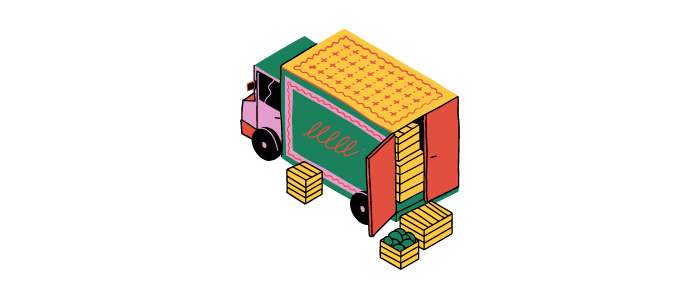Differences between Stock and Supply
What is the definition of Stock?
Stock is the excess of goods that are already available with a seller over and above those demanded from him at any given time. Stock may be an outcome of production or it may have been obtained through resale, purchase, or even gift.
In case the stock is not equal to supply, then there will be a surplus in the market and a downward pressure on prices.
An Example Of Stock: Suppose a baker goes to the market with 100 loaves of bread. He buys 10 more loaves from another baker and also sells 50 loaves to consumers. The stocks that he has left after this transaction are 60 loaves, which is his stock or inventory of goods – in other words, the quantity of goods he has yet to sell.
What is the definition of Supply?
Supply represents a certain quantity of goods offered for sale in the market at any given time. The supply curve shows how much quantity will be supplied as price increases or decreases, but it does not indicate how fast prices are likely to change.
An Example Of Supply: Suppose a business is selling 100 units of its product for $100 each. The supply curve will show that the company will continue to sell at least 80, 70, and 60 units as the price reduces further – but it does not indicate how fast this reduction in price will take place.
Stock vs Supply: What is the difference?
- Supply represents a certain quantity of goods offered for sale in the market at any given time. Supply is derived from stock while stock is the result of production and its objective is to provide supply.
- Stock and supply are two independent variables in the price determination process of a product. Supply is obtained from stock which, again, is derived from production.
- Stock represents finished goods while supply refers to raw materials or intermediate products as well as finished goods.
- Supply can be obtained from stock. There may not necessarily be a direct relationship between supply and production, but there is always some relationship between the two variables.
- Supply refers to all kinds of goods that are offered for sale by the producers in the market at any given time while stock includes only finished goods.
- Stock is the result of production while supply is obtained from stock. Therefore, supply can be considered as a demand for items that are already available with the seller and not directly related to production.
- Stock is the excess of goods that are already available with a seller over and above those demanded from him at any given time while supply represents an excess in quantity offered for sale by producers over the existing stock.
- Supply can exist even when there is no demand for products, as long as they are produced. On the other hand, stocks are a result of demand.
- Stock is related to production while supply may not necessarily be so dependent on it. Supply can also be obtained from the stock even if there is no immediate relation between production and supply but both variables are in some way interrelated.
- Supply is the quantity of goods that are offered for sale by producers at a given price and time, while stock represents the excess in stocks over demand. Stock can be considered as a result of supply or production whereas it is not necessarily so with supply.
